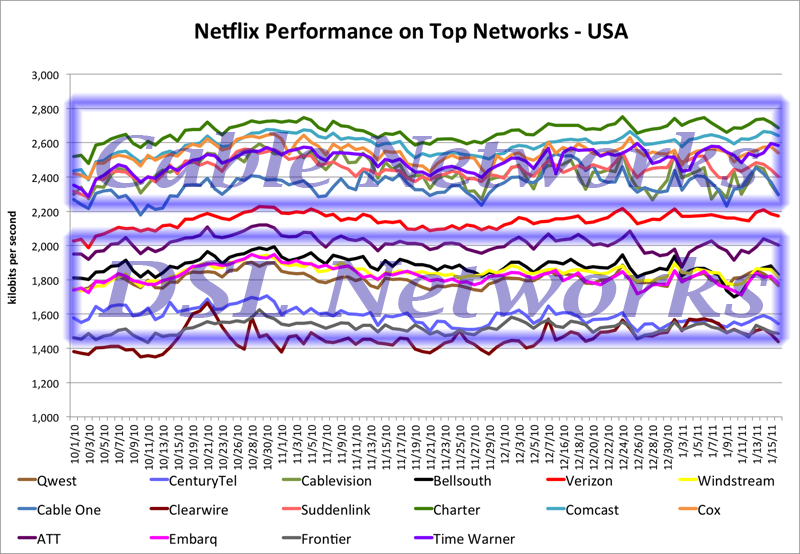Clearwire, which brags that it built the first 4G network in the country, is
under assault from its customers.
Customers began complaining in mid-2010 that Clearwire had begun to throttle their home Internet connections, sometimes as slow as 256Kbps. It wasn't clear (ba-dum ching) at the time as to what standard Clearwire was using in order to trigger the throttling—some users were told about monthly usage caps while others were simply told that there were certain times of day in which the network would be congested. Customers were frustrated at this lack of transparency, and complaints began piling up all over the Web.
We were told for years that WiMax would obviate the need for last-mile wired connections. Now we are told that 4G LTE will solve those problems - and gullible reporters gush about how fast their connections are in these early days as the network is built. This is akin to driving on a metro interstate at 3AM and wondering why anyone would ever complain about rush hour traffic. 4G networks will likely be much better than 3G (it is a higher number, after all) but it remains to be seen how well they perform in real world conditions when many devices can actually attach and congest them.
We remain skeptical of wireless as a solution to last-mile problems. Wireless does little more than take a high-capacity wired connection and split it among hundreds or thousands of users - while reducing its reliability.




